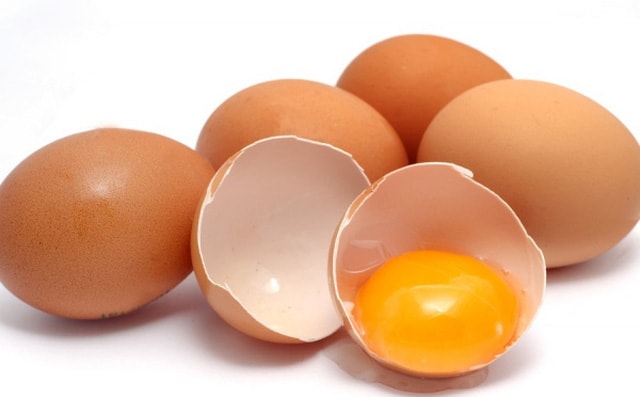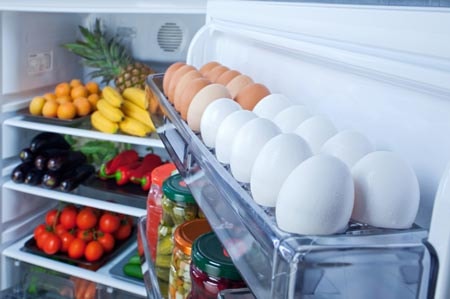Improper storage of poultry eggs will cause bacteria to enter.
Most consumers believe that eggshells are resistant to all types of bacteria. In fact, the surface of eggs has many air holes, through which bacteria can enter.
According to agricultural experts, eggshells are composed mainly of calcium salts (93.5%) that function to protect the internal components of the egg. On the surface of the eggshell there are very small air holes, people have counted 7,000 - 7,600 air holes on the surface of the eggshell, the shell thickness is about 0.2 - 0.4 mm.
Next comes two layers of shell membrane made of interwoven Keratin fibers. One layer adheres to the shell while the inner layer adheres to the outer albumen layer. The thickness of these two membrane layers is about 0.057 - 0.069 mm, both layers have holes for air to enter inside to help the embryo breathe and develop.
Therefore, through the air holes on the surface of the eggshell and shell membrane, bacteria such as Salmonella, H1N1 virus, mold, dust in the air... can penetrate into the egg.
 |
| When choosing eggs, we should not only look at the color but also pick them up and shake them gently to check the "firmness" of the egg. |
When a hen lays an egg, the surface of the eggshell has a protective layer of mucus, but this mucus is easily contaminated with feces and dirt. When there is a large number of bacteria on the surface of the eggshell, it increases the chance of bacteria entering the egg.
Once inside the egg, bacteria can use the nutrients in the egg to multiply. Therefore, according to experts, eggs should not be kept in the refrigerator for more than 30 days from the date of packaging for sale.
If you buy eggs from the market, you should use them within 3 weeks from the date of purchase to ensure good quality.
 |
| When storing eggs in the refrigerator, you should not leave them out at room temperature for too long. After taking eggs out of the refrigerator, you should use them within 2 hours to ensure freshness and nutritional content. |
When you buy eggs, wipe them with a wet towel and then put them in the refrigerator to avoid bacteria from the eggshell spreading to other foods. Eggs should only be stored in the refrigerator for 3-5 weeks. Eggs taken out of the refrigerator should be used within 2 hours, otherwise they will spoil.
Alternatively, eggs can be stored in rice husk bins. Line the bottom of the bin with a layer of dry, clean rice husks, with one layer of rice husks for each layer of eggs. Eggs can be stored in a box containing dry tea leaves, in a cool, shady place.
To tell if an egg is fresh or old, consumers need to place the egg in a bowl of cold water. A fresh egg will sink to the bottom of the bowl and stay still. A slightly old egg (about a week old) will lie at the bottom but float slightly. If the egg balances with the pointed end facing down and the larger end facing up, it has been kept for about 3 weeks. If the egg floats on the surface of the water, it is spoiled and should not be eaten.
According to Tin Tuc Newspaper
| RELATED NEWS |
|---|


